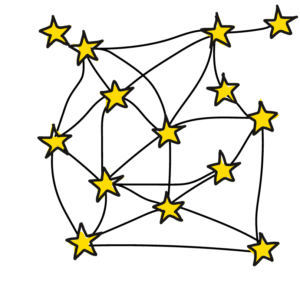Every time we search or surf the internet, an auction for our attention takes place behind the scenes. The whole thing takes milliseconds, is called “Real Time Bidding” (RTB) and is one of the sources of income for Google & Co.
“Your Online Attention, Bought in an Instant” was the headline of the New York Times back in 2012. Back then, data-based real-time auctions accounted for only a small part of online ad sales. Today, it has become a $117 billion business that fuels the financial success of Google and other companies.
It is clear that we pay for supposedly free services with our data. But what does that mean in concrete terms? Who is passing on our personal data? And where does it end up? The Irish Council for Civil Liberties (ICCL) has now calculated the scope of Real Time Bidding and concludes that it is an “epic data breach”.
What is it about?
In real time bidding, advertising networks buy ad space on the internet for their customers in an auction. The whole thing takes place in milliseconds. The ads appear immediately in the search result environment.
The following happens approximately 178 trillion* times a year:
- An ad space provider, for example Google, compiles a data dossier about the person searching and their online activities from various sources in real time. The data includes, for example, information about the device, search history, previously visited websites and their content, and details about the location.
- The provider sends this dossier to potential advertisers or their intermediary networks.
- With the help of the data dossier, the highest bidder can now display the advertising that is particularly well suited to the viewer (“targeted behavioural advertising”) on the advertising space purchased at auction.
According to the ICCL report, the figures look like this:
- European users account for around 71 trillion “data leaks” per year.
- Every day, RTB in Europe shares what we are watching online and where we are 197 billion times.
- According to the ICCL, Google is the largest generator of such data transmissions. In Europe alone, Google transmits personal data to 1,058 companies about 42 billion times a day (surprisingly, in the US it is “only” 31 billion times, but 4,698 companies).
- Google generates around 19.6 million “data broadcasts” per minute about the online behaviour of German internet users.
What does this mean for us personally?
In Europe, the data of an average European user is forwarded to third-party companies 376 times a day. If we are online in Germany, we are tracked approximately once per minute.
What’s so bad about it?
Civil libertarians from the ICCL and also some data protection authorities argue that real time bidding in its current form violates the General Data Protection Regulation. It states that personal data must be processed lawfully and fairly. The processing of personal data must be kept to a minimum. These principles would be massively violated by the RTB.
Crucial points are, for example:
- Companies like Google and Bing and operators of other services send our data, some of it very personal, to companies around the globe, including Russia and China.
- Once sent, there is no way to limit or control the use of RTB data. It is impossible to control what the third-party companies do with our data or who they share it with. This raises questions about the security and retention of this data.
- Detailed profiles can be created from the data. For example, data brokers used it to profile Black Lives Matter demonstrators.
- Sharing this personal data with third parties is done without properly assessing and removing the risk of these counterparties.
And: no user has ever explicitly consented to this practice.
The ICCL concludes that Real Time Bidding is a threat to our fundamental rights and endangers our democracy. “Every day, the RTB industry tracks what you look at, no matter how private or sensitive, and records where you go. This is the biggest data breach ever recorded,” says Dr Johnny Ryan of the ICCL. “Conservative estimate: Google does this billions of times, every day.”
*(the figures are for the USA and Europe)
The report can be found on the ICCL website. At the bottom you will also find an informative video with Dr. Johnny Ryan.
ead the Wikipedia article on Real Time Bidding here. Further articles on the ICCL report can be found at Zeit, T3N, Deutschlandfunk Nova, the BBC and a very readable commentary at Bloomberg.
Read the Wikipedia article on Real Time Bidding here. Further articles on the ICCL report can be found at BBC and Bloomberg. German language articles at Zeit, T3N, Deutschlandfunk Nova.

